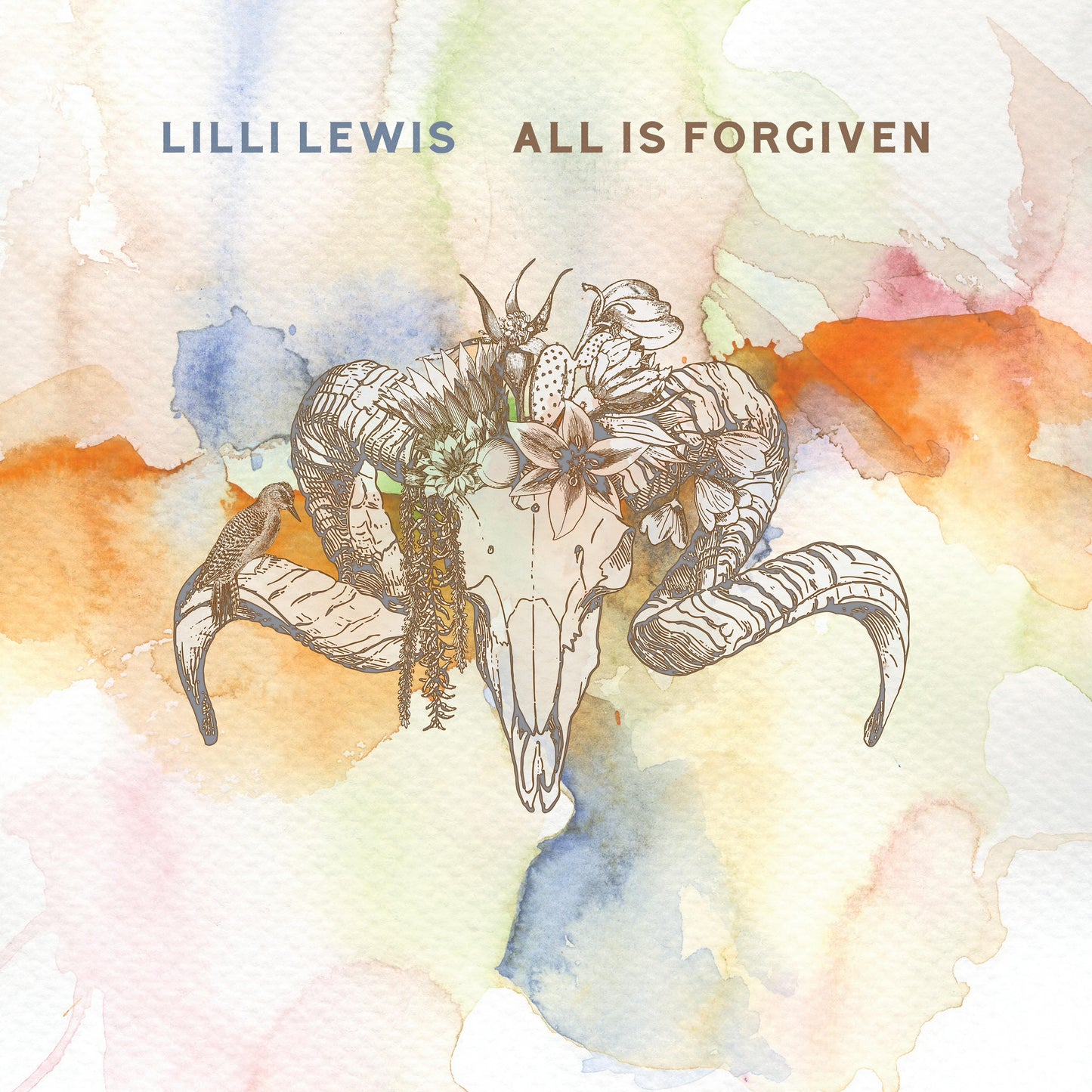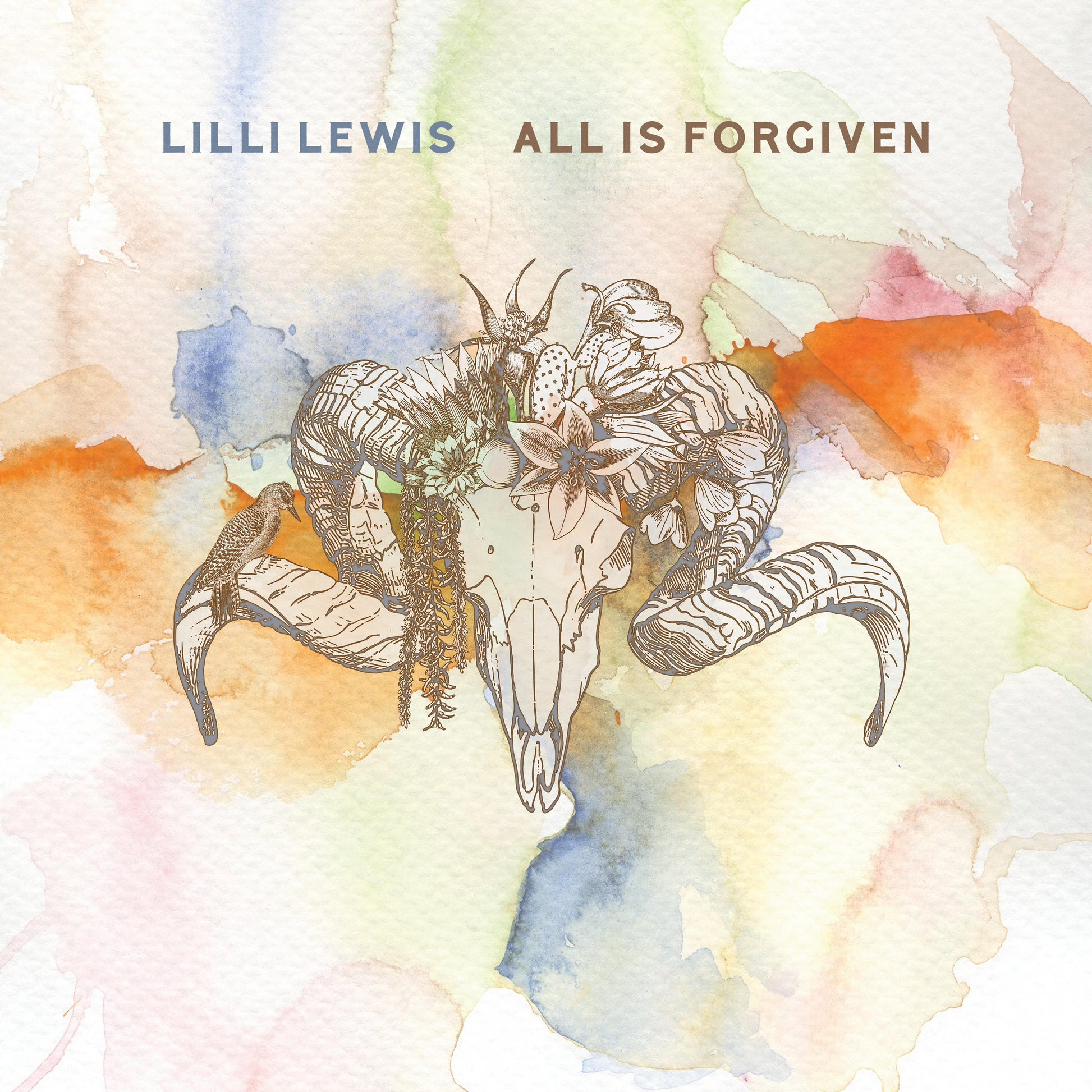Lilli Lewis
Lilli Lewis - All Is Forgiven
Couldn't load pickup availability
Athens, GA native turned New Orleans Folk Rock Diva Lilli Lewis says her latest release “All Is Forgiven” could just as easily have been named “Treasures from Exile,” because it chronicles the lessons she learned while stranded in a decidedly uncomfortable professional limbo. She had been released from the helm of the New Orleans based record label she had been charged with holding afloat, after seeking anti-racist mediation with a toxic CEO. And she had been “ghosted” by the omnipresent (in certain circles) Black Opry, an organization for which she had once produced a COVID era virtual festival, because, as she was told, its leader “did not like her album.”
At a time when Lewis had grown accustomed to working up to 100 hour work weeks, even during the pandemic, serving her artists while supporting greater visibility and equity for Black artists in Americana, Lewis had the rug pulled from beneath her. Disoriented but still eager to support her 2021 release “Americana,” Lewis hit the road, and folks who attended any one of the 115 appearances she made her first year out may have heard Lewis admit that there were days when she wasn’t sure there was any song left in her.
She often claims the songs she wrote for “All Is Forgiven” wrote themselves without her consent and the collection supports this claim because it represents the most extraverted and optimistic work the artist has released to day. While the album opener (which features friend and frequent collaborator Kirk Joseph of the Dirty Dozen Brass Band and a vocal insert from her great grandfather Dr. William J. Faulkner) “Sin Eater” offers a defiant “Take your sin and run!” declarative, the second track “Happy Enough,” co-written by her wife Liz Hogan, immediately pivots the tone to an equally defiant joy. Following up on the artist’s “undaunted” character assessment by music writer Marcus K. Dowling, the title track “All Is Forgiven,” is an effervescent pop rock declaration turned mantra, with the relentless fervor of one who has finally learned the value in the “fake it ‘til you make it” mentality.
The track four pop ballad “Just One Ride” starts to unpack why Lewis says “you don’t write a whole record called ‘All Is Forgiven’ without plenty to forgive. When I found this song on my hard drive, I knew my subconscious was trying to get me to turn a corner, so I always offer it up for others going through a hard time who might need to do the same.” This song launches an introverted triptych that goes on to ask “What would you do if you really mattered?” in a tune she wrote for her cousin, 2022 American Idol runner-up Willie Spence who tragically died in a car accident only four days after the song was demoed. While the song questions what purpose radical self-acceptance might unlock, its epic follow-up “Possible” explores some of the things that might be impeding that purpose. Its moody tone blossoms into self-determination “I am a child of the beginning / Where nothing would be without its flaws / I’ll never be flattened by perfection / best to expand by nature’s laws,” a lyric that pivots to reveal that the existential brood is indeed a tender, lifted-gaze love song, “I choose to do my best to love you / To believe in grace more than contempt / I will metabolize your loving / Takes me back to where I begin.”
While “Possible” serves as the albums centerpiece, its heartbeat may be the tender waltz found in “Ciel Éternel,” a lullaby Lewis says she wrote to her “little baby self,” sung in French to a translation provided by Jamaican composer and lyricist Craig Bloomfield. This delicate moment musicaux is answered by the ancient sounding swampy dirge of “Drink This Water Child,” and is rounded off by the humble, expansive, classic rock pining of Liz Hogan’s “Firefly.”
While the album was being written and produced, Lewis received the Best Country/Americana Album Award from OffBeat Magazine, produced the Black American Music Summit for Folk Alliance International, and supported her childhood heroes The Indigo Girls on shows in the midwest and southeast, while releasing critically acclaimed versions of “Woodstock'' by Joni Mitchell and most recently “Creep” by Radiohead, all while maintaining an active touring schedule. The closed doors that sent her into exile opened doors she may never have imagined, but most importantly, Lewis feels the songs have brought her closer to some truths she may have been missing out on before. As the album asks in its closer “When we find life again / Do this for me / Teach me to love / Teach me to sing / Teach me to burn like the firefly / Teach me to light the dark quiet sky.”
Share

Subscribe to our emails
Be the first to know about new collections and exclusive offers.

